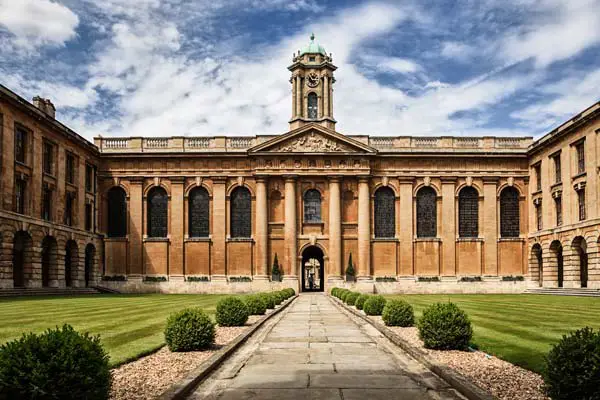Can IGCSE Students Appear for UPSC? Exploring Eligibility Requirements
The IGCSE qualification is widely acknowledged worldwide and sought after by students aspiring to pursue higher education abroad. Its curriculum offers a comprehensive education to equip students for post-school life.
However, Indian students who finish their IGCSEs sometimes seek clarity on whether they qualify for the Union Public Service Commission (UPSC) exam. The UPSC exam is highly esteemed and fiercely competitive, selecting individuals for diverse civil service roles in India.
The examination is open to candidates who have graduated from a recognized university or institution. However, IGCSE students need more clarity about their eligibility to appear for the examination.
While some believe they are not eligible to appear for the examination, others still determine the eligibility criteria for IGCSE students. This article clarifies the eligibility of IGCSE students to appear for the UPSC examination.
Understanding IGCSE and UPSC
The IGCSE, offered by Cambridge Assessment International Education, is a globally accepted qualification. It provides a well-rounded education for 14 to 16-year-old students and is acknowledged by universities worldwide, including in India.
The Union Public Service Commission (UPSC) serves as India’s primary central recruitment agency. It conducts diverse exams for various government services.
The UPSC administers the Civil Services Examination (CSE) to choose candidates for prestigious roles like IAS and IPS within the Indian Administrative Service and Indian Police Service.
While many universities in India recognize the IGCSE, appearing for the UPSC exams is optional. However, candidates who have completed their IGCSE studies may be eligible to appear for the UPSC exams if they meet the eligibility criteria.
To be eligible for the UPSC exams, candidates must be Indian citizens, aged between 21 and 32 years, and have a bachelor’s degree from a recognized university.
Candidates who have completed their IGCSE studies and have obtained a bachelor’s degree from a recognized university may be eligible to appear for the UPSC exams.
It is important to note that the IGCSE is not equivalent to a bachelor’s degree and does not meet the educational qualification requirements for the UPSC exams.
🌟 Hey Students! 🚀 Ready for the ultimate experience? Join us on Studentsinside.com's Facebook, YouTube, WhatsApp, and LinkedIn. Click now for tips, fun, and success vibes! 🌈✨ #StudentLife #JoinUs
However, candidates who have completed their IGCSE studies and have obtained a bachelor’s degree from a recognized university may be eligible to appear for the UPSC exams.
Eligibility Criteria
Candidates seeking eligibility for the UPSC Civil Services Examination must adhere to the criteria established by the Union Public Service Commission (UPSC). These criteria encompass age limits, educational qualifications, and nationality requirements.
Overview of UPSC’s Criteria
The Civil Services Examination, overseen by UPSC, aims to recruit candidates for various administrative roles in the Indian government.
This rigorous process involves three stages: Preliminary Examination, Main Examination, and Interview. Only those who excel in all three stages are chosen for diverse civil services positions.
Discussion on Educational Qualifications and Recognized Degrees
Applicants need a recognized bachelor’s degree or equivalent to qualify for the UPSC exam. Those in their final degree year can apply but need to provide proof of passing the degree exam when submitting their Main Examination application.
Candidates must also fulfill age requirements. The minimum age is 21, and the maximum is 32, with certain categories receiving upper age limit relaxations per government regulations.
It is important to note that candidates must also be Indian citizens or belong to specific categories, such as Nepal, Bhutan, or Tibetan refugees, to be eligible for the UPSC exam.
IGCSE Equivalence
The Association of Indian Universities in India is responsible for granting equivalence to foreign degrees, including Cambridge International A Levels, Cambridge IGCSE, and Cambridge O Levels. This facilitates a seamless transition for students from Cambridge programs to Indian universities.
However, it is essential to note that the AIU does not grant equivalence to qualifications awarded to students who undertake studies in private mode and have yet to enroll in a school. Therefore, students who have completed IGCSE as private candidates may need help with equivalence and recognition in India.
IGCSE holds recognition from notable Indian educational bodies, such as CBSE, CISCE, and various state boards.
This recognition deems admission to Class XI and higher secondary courses acceptable. Moreover, IGCSE is acknowledged as a Class X qualification, essential for applying to undergraduate programs in India.
Challenges and Solutions
Addressing challenges, IGCSE students may face in meeting UPSC criteria, there are a few obstacles that may arise.
Firstly, the UPSC exam’s questions and scoring pattern may need help understanding. Most hopefuls take a long time to figure out where and how to start. Speaking to teachers and senior aspirants may be helpful.
Another challenge is the eligibility criteria. The IITs require students to be in the top 20 percentile of the exam board cohort or secure at least 75% aggregate marks in the class 12 equivalent board examination to be eligible for admission.
Can Cambridge provide information showing the top 20 percentile of students? Information related to results is provided to admission bodies upon their request.
Additionally, language proficiency may be a challenge for some students. The UPSC exam is conducted in Hindi and English languages. Students who are not fluent in these languages may need help.
However, there are additional language courses available that can help students improve their language proficiency.
Suggesting solutions such as additional courses and language proficiency, a few options are available. Cambridge International offers language courses such as English as a Second Language (ESL) and Hindi as a Second Language (HSL) to help students improve their language proficiency.
Moreover, considering diverse student capabilities, the IGCSE curriculum offers a well-rounded education with a global outlook. Students can also utilize the Cambridge Checkpoint, a diagnostic tool involving standardized tests, to identify their strengths and areas needing improvement in essential subjects.
Pathways to Eligibility
IGCSE students who aspire to become eligible for the UPSC examination have several pathways to explore. The eligibility criteria for the UPSC examination require a candidate to have a bachelor’s degree from a recognized university or an equivalent qualification. However, IGCSE students who have completed their schooling may not meet this criterion.
IGCSE students aiming to qualify for the UPSC exam can achieve eligibility by obtaining a bachelor’s degree from an accredited university.
This entails clearing relevant entrance exams and meeting course-specific criteria. Opting for disciplines like political science, history, or economics, which align with their IGCSE background, is a strategic approach.
Another pathway is to complete a diploma or a certificate course recognized by the UPSC. These courses can provide specialized knowledge in areas such as public administration, governance, and international relations, which are relevant to the UPSC examination.
Some of the courses that IGCSE students can consider are:
- Diploma in Public Administration
- Certificate Course in Governance and Development
- Diploma in International Relations
IGCSE students who have finished schooling but have yet to enroll in a university can take the UPSC exam.
The criteria permit candidates who have taken an exam that, if passed, would make them educationally qualified for the Commission’s exam to apply even before their results are announced. This applies to IGCSE students awaiting their university results as well.
Importance of Preparation
Preparing for the UPSC exam is crucial for any aspirant who wishes to clear it. The UPSC exam stands out as one of India’s toughest exams, and its rigorous nature demands a thorough understanding of India’s socio-political landscape.
Aspirants should be well-versed in current affairs, history, geography, and general knowledge to excel in the exam.
The level of competition is high, and the demand for the examination is increasing yearly. Therefore, aspirants must be committed and dedicated to their preparation to achieve their goals. They should clearly understand the exam pattern, syllabus, and marking scheme to prepare effectively.
Aspirants should start preparing early and create a study plan that suits their needs. They should allocate sufficient time for each subject and practice writing answers to improve their writing skills.
Joining a coaching institute or taking online courses can also be beneficial as they provide guidance and support throughout preparation.
Choosing the right graduation subject that aligns with the aspirant’s interests and career goals is also essential. The subject should be relevant to civil services and provide skills necessary for the UPSC exam.
Conclusion
In conclusion, IGCSE students can appear for the UPSC exam if they fulfill certain conditions. Passing the final year exam should make candidates eligible for the UPSC civil services exam.
Eligibility for the Preliminary Examination extends to candidates with a graduation-level degree from a recognized university and those possessing professional or technical qualifications.
This includes individuals awaiting results from a qualifying exam that would make them educationally eligible for the Commission’s exam. Similarly, those planning to take such a qualifying exam can also apply.








